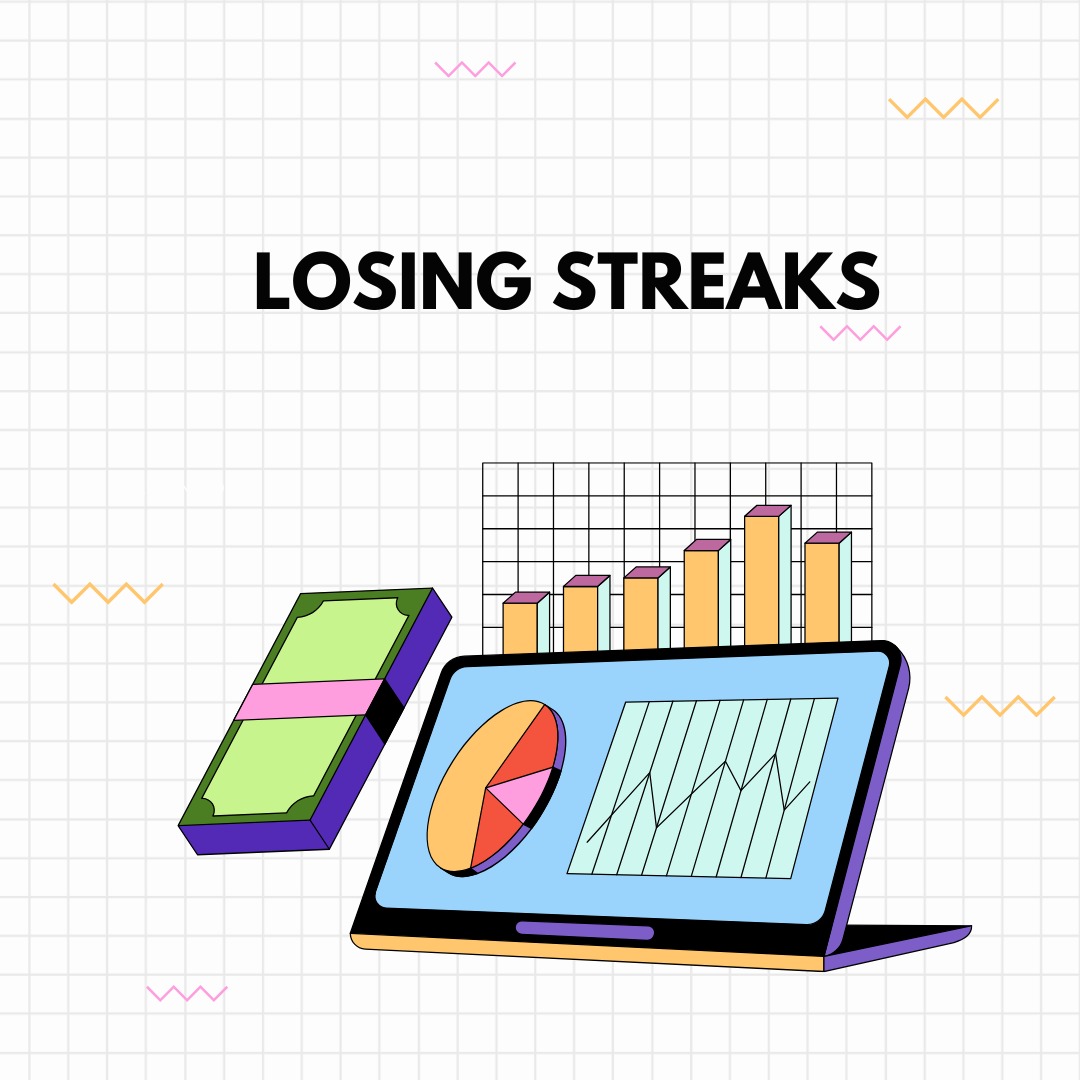The Psychology Behind Losing Streaks and How to Recover
Every trader — whether a beginner or seasoned pro — eventually faces a losing streak. It’s not just about the numbers or the charts. What truly tests a trader is how they think, feel, and react during these difficult phases. Understanding the psychology behind losing streaks is key to bouncing back stronger.
Why Losing Streaks Happen
Understanding and overcoming the inevitable challenges in trading
Market Volatility
Markets are inherently unpredictable. Even solid strategies can fail in the face of sudden news, global events, or unexpected trends.
Overconfidence
After a series of wins, traders may take larger risks or ignore their strategy. This shift in behavior often leads to losses.
Emotional Trading
Fear, greed, and frustration can cloud judgment. One bad trade can snowball into several poor decisions if emotions take control.
Lack of Discipline
Skipping stop-losses, overtrading, or chasing losses are common during losing streaks. These actions push traders further into losses.
The Mental Impact of Losing Streaks
A losing streak doesn't just hurt your account; it hits your confidence.
Self-Doubt
Traders start questioning their ability and strategy.
Fear of Pulling the Trigger
Even good setups feel risky.
Revenge Trading
Trying to "win it back" quickly often worsens the situation.
At Traders Training Academy, this is one of the most discussed challenges among new and intermediate traders. Losing streaks are seen not as failures but as a natural part of the learning curve — if approached correctly.
How to Recover From a Losing Streak
Pause and Reflect
Stop trading temporarily. Review your trades objectively. Was it the market or your decisions? This break allows clarity.
Review Your Trading Journal
Track patterns. Are you consistently making the same mistake? Are you breaking your own rules?
Rebuild Confidence with Small Wins
Start small again. Use reduced position sizes. Focus on executing your strategy correctly rather than chasing profits.
At Traders Training Academy, one recommended method is to trade on a demo or paper account for a short time. This helps restore discipline and confidence without risking capital.
Focus on Process, Not Profits
Shift your mindset. A good trade isn't one that makes money — it's one that follows your plan.
Seek Support or Mentorship
You're not alone. Connecting with fellow traders or getting guidance from mentors can accelerate recovery. Structured support — like that provided in the community and programs at Traders Training Academy — can give you the clarity and tools to bounce back faster.
Practice Mental Conditioning
Mental strength is crucial. Simple practices like deep breathing, journaling, or visualization can help maintain emotional control.
Preventing Future Streaks
While you can't avoid all losses, you can control how much you lose and how you react:
- Use strict risk management (e.g., never risk more than 1-2% of your capital per trade).
- Stick to your trading plan, even during uncertainty.
- Embrace losses as part of the journey and learn from them.
Courses at Traders Training Academy often emphasize building emotional intelligence along with technical skills — because mastering your mindset is just as important as mastering the market.
